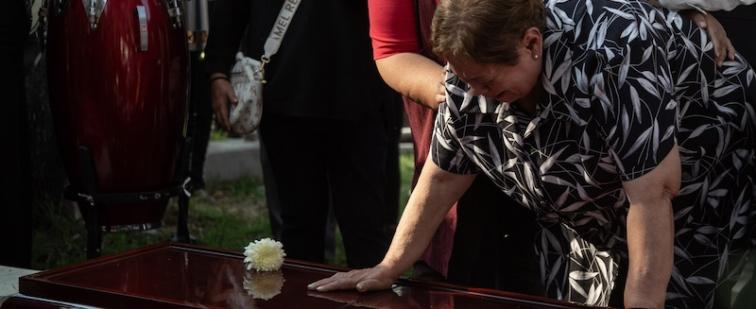Home
For the last five years, the countries of the Mercosur economic bloc have been riding a wave of economic growth mostly thanks to high commodity prices. During the boom, some countries of the bloc began efforts to reduce their dependence on U.S. financial markets with those windfall profits. Those initial efforts were good but insufficient. Still, the Mercosur countries have options available to help them weather the storm—if they move fast.
The Puerto Rican Federation of Teachers (FMPR) recently defeated the powerful SEIU labor organization in elections over representation of the island's public school teachers. During the conflict over representation, the SEIU leadership joined forces with the pro-corporate Puerto Rican government to undermine the militant FMPR. Despite the dirty tricks, the FMPR persevered, marking an important victory for autonomy in Latin America's labor movements.
Regional elections in Venezuela on November 23 could have critical ramifications for the Bolivarian movement led by President Hugo Chávez. If the re-grouped opposition makes significant electoral gains, Chávez's long-term aspirations could be significantly complicated. The elections come at a time when dwindling oil prices and the economic crisis have created unexpected obstacles to Chávez’s ambitious foreign policy agenda.
Venezuela's local elections on November 23 are the first major test for the government of Hugo Chávez since his socialist-oriented constitutional reforms were defeated last year. Although the elections are unlikely to dramatically shift the national balance of power, the results will help gauge the momentum of Chávez's project to create a “twenty-first century socialism."
The leftist FMLN party is the current favorite to win El Salvador's March 2009 presidential elections. Besides the economic downturn, the party's success at the polls is being driven by a series of political innovations that have helped broaden the party's appeal and boost its inclusiveness—both at home and abroad. Could this new strategy make El Salvador the next Latin American country to make a turn to the left?
The U.S. government’s huge new Immigration and Customs Enforcement agency (ICE) was established to battle a new kind of domestic enemy, undocumented immigration. Yet the creation of ICE was not so much motivated by a perceived need to enforce migration policy as by a desire to build up the domestic security apparatus.
When Barack Obama clinched the presidency, pundits immediately began claiming the United States was on its way toward becoming a "post-racial" or "color-blind" society. But Latin America shows how claims of an emerging "racial democracy" easily coexist with mass discrimination and racism. Until racial hierarchies are systematically dismantled, myths of racial democracy will continue to mask and perpetuate injustice—both in Latin America and the United States.
Nowhere in the hemisphere have recent political tensions between progressive and reactionary forces been sharper than in Bolivia. The country has become a flashpoint for international contests over natural-resource exploitation and revenue, constitutional reform, and U.S. influence in Latin America.
Remittances, the money immigrants send to their home countries, have become an essential economic lifeline for several Latin American nations. Mexico receives more remittances from migrants in the United States than any country in the world. But amid a tanking U.S. economy, the amount Mexicans are sending home dropped this year for the first time on record. Strangely, while Mexico reels, remittances to Central American countries have continued to rise—for now.
The election of Barack Obama sent shock-waves of pride and excitement through communities of African descent in Latin America. From Colombia to Cuba, and Peru to Venezuela, Afro-Latino activists celebrated Obama's victory at the polls as their own. Although activists noted the symbolic power of an Obama presidency, some remained questioned whether his administration would change U.S. policies negatively affecting their communities and nations.











